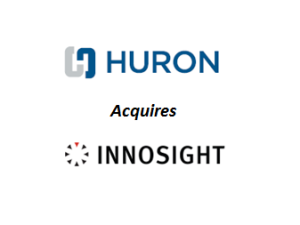 It always catches you by surprise when one of the leading players within the innovation space makes a change. In this case, Innosight has been acquired by Huron, a fellow professional services firm, one that has the vast majority of their business in the United States. Huron focuses specifically on Healthcare, Education, and Life Sciences and has been to-date far more operationally driven in its delivery solutions.
It always catches you by surprise when one of the leading players within the innovation space makes a change. In this case, Innosight has been acquired by Huron, a fellow professional services firm, one that has the vast majority of their business in the United States. Huron focuses specifically on Healthcare, Education, and Life Sciences and has been to-date far more operationally driven in its delivery solutions.
Being fairly curious you search for the fit and its meaning to both parties as Innosight has been continually shaping their offering to focus more on the strategic positioning of innovation over the past few years as the market has been undergoing a significant change in client demands and innovation solutions. I wanted to work through all of what this might mean and some more.
The transaction overview is ” Huron will purchase Innosight Holdings, LLC for $100 million upon closing, consisting of $90 million in cash and $10 million in Huron common stock, plus contingent consideration of up to $35 million if specific financial performance targets are met over a four-year period”
This time last year we saw another acquiring of a pure innovation firm Continue reading “Possibly a Significant Shift in the Innovation Consulting World?”

